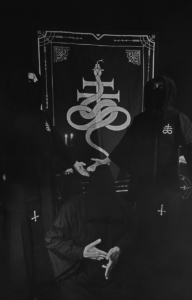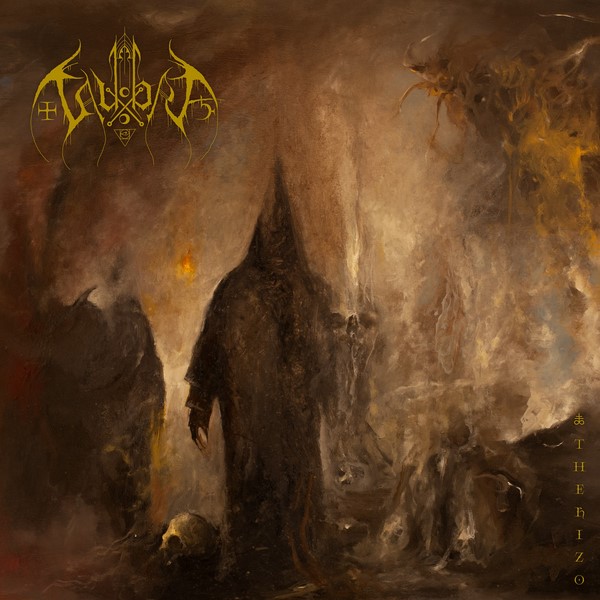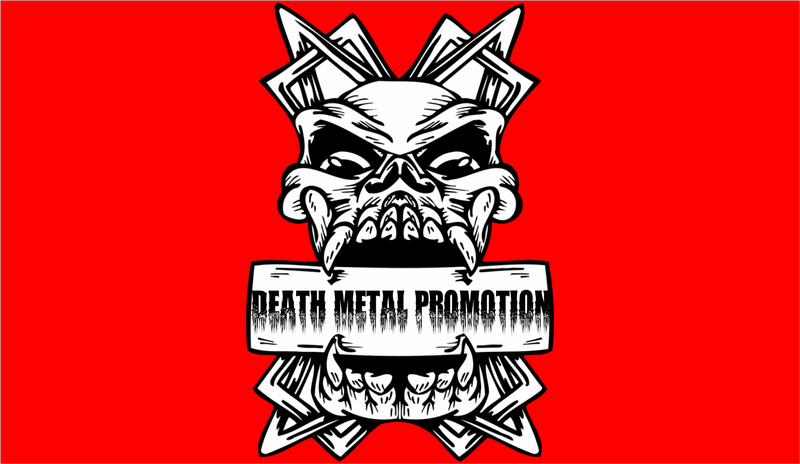 Hi! Congratulations on the release of your debut album “Therizo.” Can you share the significance behind the album title and how it encapsulates the essence of your music?
Hi! Congratulations on the release of your debut album “Therizo.” Can you share the significance behind the album title and how it encapsulates the essence of your music?
Hi there! Therizo means to reap/harvest/destroy/cut off and how you`d interpret that is up to oneself. It could be concerning your livestock or how you`d see fit. I spun it my way, and hence it sort of has a red thread throughout the album, without making it a concept album.
The formation of TAUBRĄ seems to be rooted in a desire to revive the darker, mystical aspects of Black Metal. Could you elaborate on the inspiration behind this vision and how it translates into your music?
The music has solely been made by B., and I don’t want to put words into his mouth. Let’s just say he wanted to make black metal from another angle than he usually does in Aara. And I think he achieved that, making an album more rooted in the old Scandinavian scene, harsher and more sinister.
That combined with the production makes this album sound both fresh and very inspired. A glance at the days of old if you will.
Your music has been described as a combination of traditional Norwegian Black Metal with melodic influences. How do you strike a balance between these elements, and what do you believe each brings to your sound?
It has made our album a very varied and diverse album. You got both the in-your-face parts as well as more melodic and serene parts. Writing an album that is straight forward 280 bpm can be fun, but in the long stretch it usually gets boring. I think B. managed to write one hell of a good album, it got his signature, and also shows that he has a talent many don`t have.
Can you delve deeper into the concepts you explore in your lyrics and how they align with the overall narrative of “Therizo”?
I can, but won`t. For the simple reason that I don’t like when artists take from me the pleasure of delving into their lyrics. Somehow that takes away some of the magic for me.
Let’s just say it concerns death in different ways, a dash of religion and my paintings in words.
Can you discuss the visual representation chosen for “Therizo” and how it complements the auditory experience you crafted?
I think that will resonate differently for each listener. Some will find demonic incantations in the cover art, some will see death. It all depends, both on mindset and if you see it connected to the lyrics or not. We all listen and interpret in different ways.
To me the cover represents one thing, for others something else. Explaining everything makes it too easy.
The lineup of TAUBRĄ includes members from both Norway and Switzerland. How does the diverse cultural background of the band members influence your creative process and musical direction?
I don`t think it does at all. We share the same mindset when it comes to what TAUBRĄ should be about. As well as black metal for that sake. I`ve never really given it any thought that we`re from different countries other than that we’ve never met.
“Therizo” has been described as having a deceptive simplicity yet being compulsively brutal. Can you talk about the creative process behind crafting such complex, layered compositions?
B: Taubra’s music is founded on spontaneity and driven by the force of creation within. While not particularly complex, it incorporates subtle details and layering of guitar tracks to create a rich sound. The aim was to produce primitive but engaging music with sufficient variance to avoid monotony.
Can you share insights into the production process, and how you achieved the specific sonic atmosphere you were aiming for?
B: It is a straightforward process. I record the demos and send them to the others who then add their respective contributions. The demos were extremely raw, especially when compared to the final album. At the outset, we aimed for a noisy sound, but The Empty Halls Studio’s work ultimately won us over.
Occultism often involves a deep connection with mysticism and esoteric knowledge. How does this spiritual aspect influence your approach to creating music and performing on stage?
B: We do not follow any established occult current or tradition. Taubra is driven by the fascination for the darkest aspects within ourselves, the repressed essence, which is allowed and even encouraged to break free through music. It is the exploration and expression of our inherent primal energies. The goal is not to employ a stereotypical form of Satanism, but to discover the hidden inner self that calls us.
In your music, there seems to be a juxtaposition of existential unease and primal violence. How do you balance these contrasting elements, and what kind of emotions do you aim to evoke in your listeners?
B: It’s difficult to provide a straightforward answer, as each individual can only truly experience themselves. We act based on what arises within us in the present moment.
The album is described as a ‘Magickal journey through chaos, ecstasy, darkness, and inner contemplation.’ Can you elaborate on the themes explored in each of these phases and how they resonate with the listener’s experience?
How they resonate with the listener is hard for us to say, I guess you have to ask those who listen.
Other than that it simply gives you a thought on what kind of journey TAUBRĄ wants you to experience with Therizo, cause that is what you get, musically and lyrically.
For me, as a listener, the album offers all of that, and then some. For others, it won’t.
The Black Metal genre often delves into unconventional song structures. How do you approach songwriting in TAUBRĄ, and what challenges do you face when experimenting with the traditional forms of Black Metal?
B: Our approach with Taubra to Black Metal is to stay true to its essence rather than delve into experimentation. We strive to avoid imitating the 90s/00s Black Metal Bands that inspire us and instead fuse the unique elements of the genre to create something special. There is no predetermined structure or pattern to our songwriting process; it comes into existence and remains out there for all to either appreciate or criticize.
Can you share any memorable experiences from the recording sessions or live performances related to the songs on “Therizo”?
The recording process was every man for himself so to say. The swizz guys did their part in Switzerland and I did my bit here in Trondheim, with the kind help from Ahzari. He was also kind enough to lend us his voice, when mine failed. Laying down the vocals took about 5-6 hours. I had never rehearsed these songs, so I had no idea how it would end up to be beforehand…
In your opinion, how has the Black Metal scene evolved over the years, and how does TAUBRĄ contribute to its continuation and evolution?
If you by Black Metal scene means music I`d say it has had a healthy evolution. And a natural evolution. Many bands thread the same path as the first bands, and worship the first wave. Others explore the many possibilities the genre has, and will keep exploring. I have a great respect for both, those who commit themselves to a certain style within the genre and those who seek to explore and widen it.
TAUBRĄ contributes with a strong and powerful album. Do we contribute to the evolution of the genre? I doubt it, but it remains to be seen I guess.
Looking forward, what can fans expect from TAUBRĄ in terms of future releases, collaborations, or live performances? Thank you for your time!
There will be more releases, for sure. We got more material, so it is all a matter of time and recording possibilities. Other than that the future will tell I guess… Thank you for your interest in our craft.
If you really would like to support Antichrist, you can just Share our article.
You can also support Antichrist by sending a couple bucks to cover some webhosting expenses. =>> PayPal



